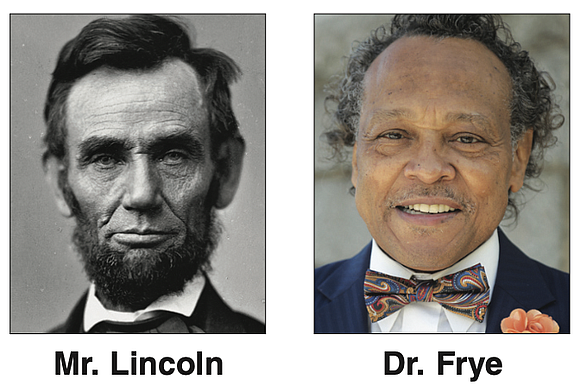Sharon Baptist Church hosts New Year’s Emancipation Day Service
Jeremy M. Lazarus | 12/28/2023, 6 p.m.
One Jan. 1, 1863, as the Civil War raged, President Abraham Lincoln took the momentous step of abolishing slavery in Virginia and other Southern states that were fighting to break away from the United States.
That watershed moment in American history once again will be celebrated in Richmond on New Year’s Day at a service sponsored by the Baptist Ministers’ Conference of Richmond and Vicinity at a new location.
The 84th Annual Emancipation Day Service will take place 11 a.m. at Sharon Baptist Church, 500 E. Laburnum Ave., across the street from the Richmond Raceway, according to Dr. Lester D. Frye, conference president.
The venue changed after Fifth Baptist Church, the service’s longtime home, declined to host the event due to concerns about risks from COVID-19, Dr. Frye said.
The keynote speaker this year will be the Rev. A. Lincoln James Jr., veteran astor of Trinity Baptist Church in the city’s North Side.
The worship program, which also raises funds for area branches of the NAACP, caps the services that are annually held in Black churches to remember the beginning of the end of slavery in this country.
On New Year’s Eve, many churches will host Watch Night services that date back to Dec. 31, 1862, when prayer vigils were held in hopes that President Lincoln would keep his word that he would issue the slavery ban the next day.
President Lincoln’s action is highlighted nationally in the Juneteenth holiday that recalls Union forces taking control of Texas in June 1865 and finally issuing the proclamation freeing slaves in that state.
He understood his proclamation freeing slaves and paving the way for Black men to serve as soldiers was a wartime measure and was effective only where Union troops held sway against the rebels seeking to form a country where slavery would always be allowed.
To make it permanent, he successfully pushed for passage of the 13th Amendment to the U.S. Constitution to actually abolish slavery, although the text did allow slavery for those convicted of and imprisoned for felonies.
Congress passed the amendment in early 1865, and it became law in December 1865, seven months after President Lincoln’s assassination. The new amendment was officially proclaimed on Dec. 18 after Congress certified that more than two-thirds of the states – 27 of the 36 states then existing – had approved it.
The Richmond event was launched on Jan. 1, 1940, by the late Rev. W.L. Ransome of First Baptist Church of South Richmond, who wanted to ensure that future generations learned about this milestone.








